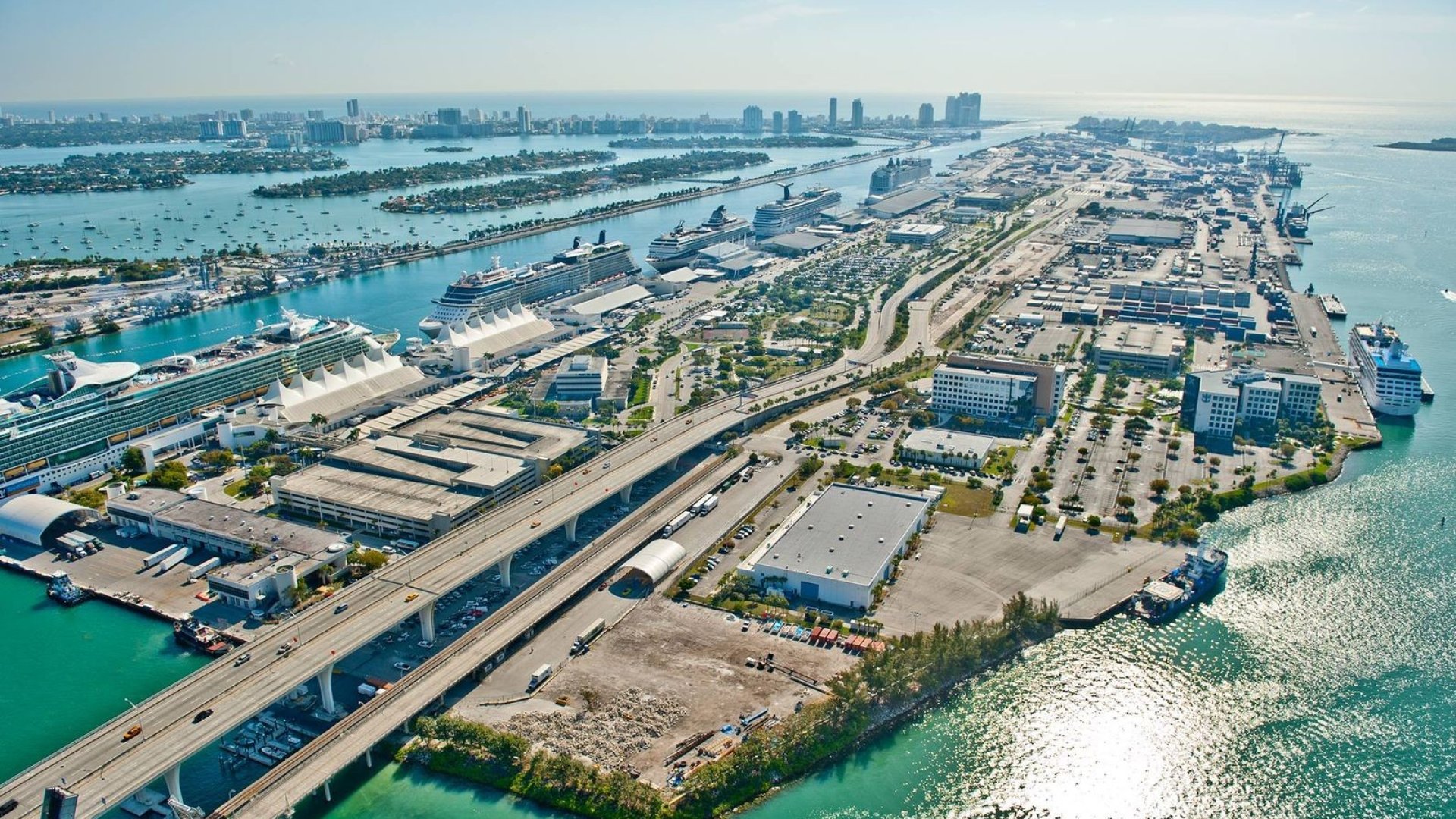PortMiami Fuel Crisis Raises Concerns for Cruise Lines and Passengers

A busy day at PortMiami - Port Miami LinkedIn
PortMiami — the world’s cruise capital and homeport to millions of travelers each year — is facing a potential disruption that could impact cruise operations if officials fail to secure a long-term fuel source.
The issue began when PortMiami’s only fuel supply facility, located on nearby Fisher Island, was sold in September to real estate investment company HRP Group for around $180 million. The company reportedly plans to redevelop the property, which for decades has stored the marine fuel that powers cruise ships and cargo vessels entering and leaving Miami.
With no alternative fuel depot currently available, officials warn that if a solution isn’t found soon, cruise ships may face logistical challenges refueling at the port, potentially leading to itinerary changes or even the relocation of some homeported vessels.
PortMiami’s Fuel Uncertainty
Unlike other major cruise hubs, PortMiami doesn’t have its own dedicated fuel facility on-site. Instead, it has relied on the privately owned Fisher Island bunker just across the channel — a setup that has worked for years but now poses a major risk to operations.
The sale has forced Miami-Dade County into emergency planning mode. Commissioners are exploring options that include acquiring the Fisher Island site through eminent domain or constructing a new, county-owned fuel farm directly on PortMiami’s Dodge Island.
“There’s a certain tipping point where it costs too much and ships go someplace else,” said County Commissioner Oliver Gilbert. “At the last meeting, we were playing with fire. This meeting, we’re playing with hell.”
The concern is clear: if cruise lines cannot easily and efficiently refuel in Miami, they could look to base their ships elsewhere — a serious blow for a port that welcomed over 8 million cruise passengers in 2024, generating billions in tourism revenue for South Florida.
Impact on Cruise Lines and Passengers
For now, no cruise operations have been affected, and all sailings continue as scheduled. However, behind the scenes, industry executives are keeping a close eye on developments.
Fuel supply disruptions could create challenges for cruise lines like Carnival Cruise Line, Royal Caribbean, Norwegian Cruise Line, and MSC Cruises, all of which homeport multiple ships in Miami. If the county cannot secure a stable long-term fuel source, future itineraries or turnarounds could become more complicated — particularly for larger ships that require massive quantities of fuel.
While unlikely in the short term, sustained uncertainty could push cruise lines to consider other Florida ports such as Port Everglades or Port Canaveral for certain deployments.
For passengers, the effects would most likely come in the form of itinerary adjustments or altered embarkation ports, though any such changes would be widely communicated well in advance.
County Officials Scramble for Solutions
Miami-Dade officials are scheduled to meet with HRP Group on October 20 for mediation to discuss potential land use compromises. HRP has agreed to pause any new development plans until those talks are complete.
Meanwhile, the county is assessing options for building its own fuel farm directly at PortMiami, which would finally give the port energy independence and eliminate reliance on outside suppliers.
Commissioner Raquel Regalado has positioned the situation as both a challenge and an opportunity.
“PortMiami deserves a secure, modern fuel facility that ensures energy independence,” Regalado said. “This is our chance to bring the port fully into the 21st century.”
Regalado added that any new facility must prioritize environmental responsibility and storm resilience, reflecting PortMiami’s unique location in Biscayne Bay, one of Florida’s most fragile ecosystems.
A Wake-Up Call for Port Infrastructure
Industry observers note that the crisis underscores the importance of modernizing port infrastructure, not just in Miami but across major cruise hubs.
PortMiami’s 2011 Master Plan envisioned balanced growth between cruise and cargo operations, but commissioners now say it needs a complete update to reflect modern needs — including shore power, renewable energy, and resilient fuel systems capable of supporting the next generation of cruise ships.
Shore power installations, currently underway, will soon allow ships to plug into the local electrical grid instead of burning fuel while docked — a major step toward reducing emissions and improving air quality around the port.
What Happens Next
For now, Miami’s cruise operations remain unaffected, and no fuel shortages are expected in the short term. However, the coming weeks will be crucial.
The October 20 mediation with HRP Group will determine whether the county can reach an agreement to continue using the Fisher Island depot, at least temporarily. If not, officials may move forward with eminent domain or fast-track plans for a new facility on Dodge Island.
A report from county administrators is expected the following day, October 21, outlining Miami-Dade’s next steps.
Regardless of the outcome, one thing is clear: maintaining a reliable fuel supply is essential not only for cruise lines but also for the millions of passengers who begin their vacations at PortMiami each year.
“This isn’t just about fuel,” Regalado said. “It’s about the future of PortMiami — and ensuring that the world’s cruise capital keeps sailing forward.”

Discussion
Start the Conversation
Be the first to share your thoughts on 'PortMiami Fuel Crisis Raises Concerns for Cruise Lines and Passengers'.